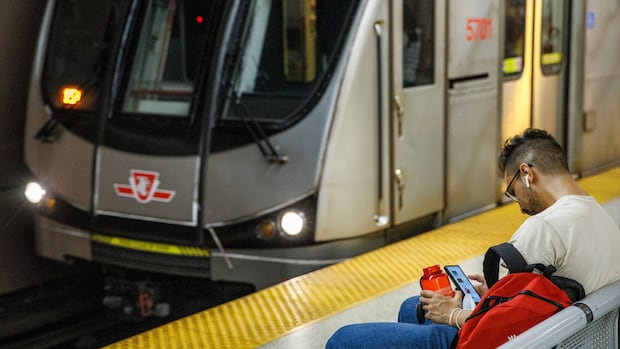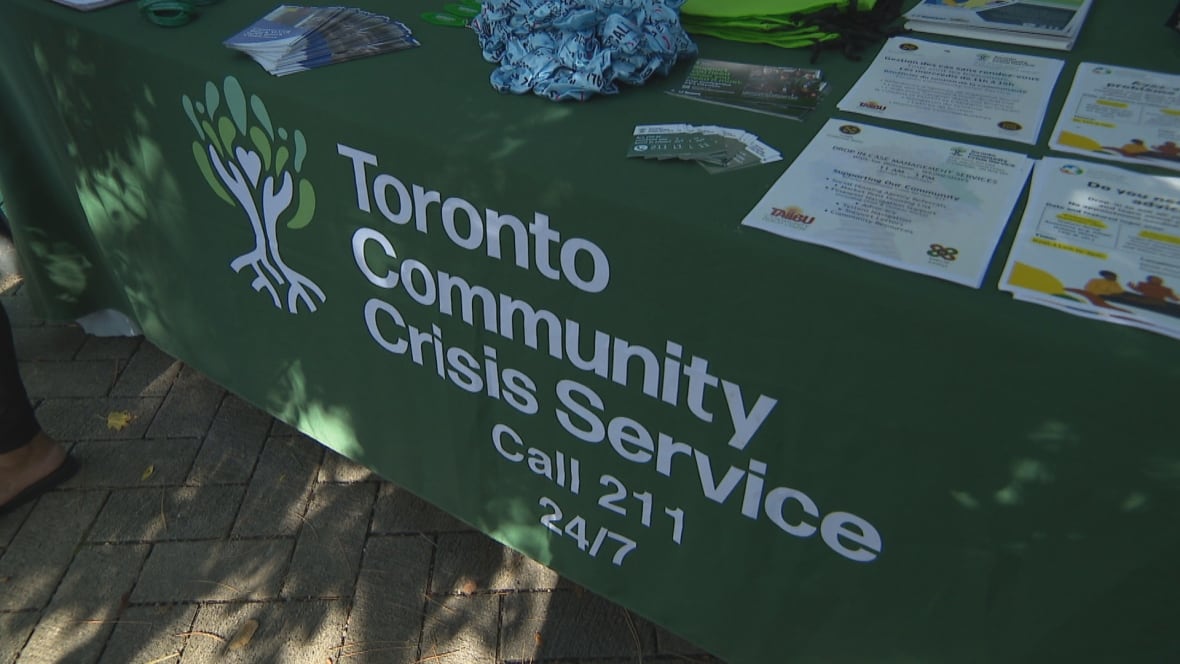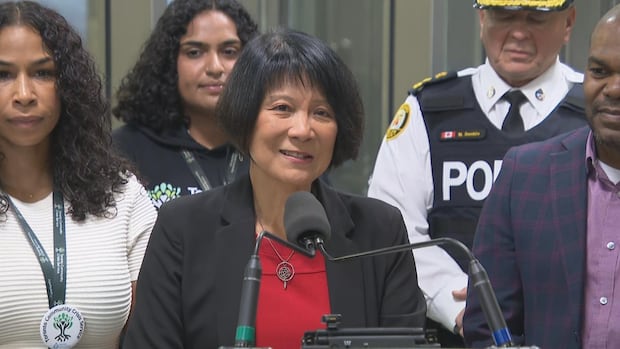Commuters may start to see crisis workers on subway platforms this November, Toronto Mayor Olivia Chow announced Wednesday.
Starting Nov. 15, crisis workers will be available around the clock on the “u” portion of the Toronto Transit Commission’s Line 1.
The pilot project aims to make the TTC safer. TTC special constables received over 1,028 calls for persons in crisis in 2024, the city said in a news release Wednesday.
“Better safety and better service is how we bring riders back, unclog our roads and get Toronto moving,” Chow said in the release.
Speaking to reporters at Wellesley Station Wednesday morning, Chow said riders should know how to respond to crisis situations rather than feeling powerless.
“We are actually bringing everybody together in a team so that we could give the kind of appropriate response, care and services in order to respond to a crisis,” she said.
The pilot project will see three teams of crisis workers in highly visible uniforms, Chow said.
WATCH | Here’s how the pilot project will work: 
TTC is adding crisis workers to a portion of Line 1. Here’s how it will work
Commuters may start to see crisis workers around the clock on the “u” portion of the TTC’s Line 1 starting Nov. 15. CBC’s Lane Harrison has the details.
“We are building safer, stronger and more caring communities by investing in more people on the frontline,” she said.
Chow says the transit agency will evaluate the pilot project’s success before deciding whether or not to implement it at every subway station.
‘Safety is the DNA of the TTC’
TTC CEO Mandeep Lali, who was also at the news conference Wednesday, said this project is an important step toward increasing ridership because safety is part of a customer’s experience.
“Safety is the DNA of the TTC. Safety is paramount to what we do, how we do it,” he said.
The 2025 Listening to Toronto survey found that, of the respondents, only 16 per cent said they felt safe as a public transit user.
Speaking to reporters at city hall Wednesday, Coun. Brad Bradford (Beaches-East York) said he’s glad the mayor is “finally acknowledging” there is a safety issue on the TTC, but the pilot project falls short of what’s needed.
“Crisis response workers are part of the equation, but they do very little to keep riders safe on a platform or on a vehicle during an … assault,” he said. “These are the types of situations that are really keeping people off the TTC right now.”
Instead, Bradford thinks there should be more transit police officers and special constables around.
“You should walk into a TTC station and take comfort in the fact that you see transit police or special constables there. This program doesn’t speak to that at all,” he said.
Over 29K calls, 78% resolved without police involvement
Toronto Community Crisis Service (TCCS) workers will be stationed at Spadina, Union and Bloor-Yonge stations but will be deployed to respond to calls. The TCCS was launched by Chow in 2024 and provides free, in-person mental health support.
Leshar Willis is the manager of the central division of TCCS at Gerstein Crisis Centre. She said 78 per cent of mental health calls they receive were resolved without police involvement.
According to Coun. Chris Moise (Toronto Centre), the TCCS has responded to approximately 29,000 calls to date.
“This new pilot will be [a] crucial step forward in advancing Toronto’s community safety and well-being plan. [It] will also be making the TTC a safer place,” he said Wednesday.
Moise added that Toronto police and TTC special constables received 857 calls regarding concerns for safety, security and well-being in August alone.
 Toronto Community Crisis Service (TCCS) workers will be stationed at Spadina, Union and Bloor-Yonge stations but will be deployed to respond to calls. The TCCS was launched by Chow in 2024 and provides free, in-person mental health support. (CBC)
Toronto Community Crisis Service (TCCS) workers will be stationed at Spadina, Union and Bloor-Yonge stations but will be deployed to respond to calls. The TCCS was launched by Chow in 2024 and provides free, in-person mental health support. (CBC)
Toronto pollice Chief Myron Demkiw said officers are highly trained to handle these situations but he’s glad they’re partnering with a community organization.
“Treating mental health as a healthcare issue allows everyone to focus on what they do best. Toronto community crisis service teams bring specialized mental health expertise to our transit system, while our officers help ensure a safe environment, prevent crime and disorder and enforce the law,” he said.
More often than not, mental health related calls do not result in violence, Demkiw said. But if situations do become dangerous, officers are just a call away.
“Today’s announcement does not replace our presence. In fact, it complements it. It represents a future where we are building together where the right response meets the people,” he said.
Riders will be able to access the TCCS workers through the SafeTTC app, by talking to TTC staff or by calling 211. The app’s “Wellness Check” option will ask users for the location or the vehicle number.
Chow is set to bring an item that further explains the project to city council on Oct. 8.

